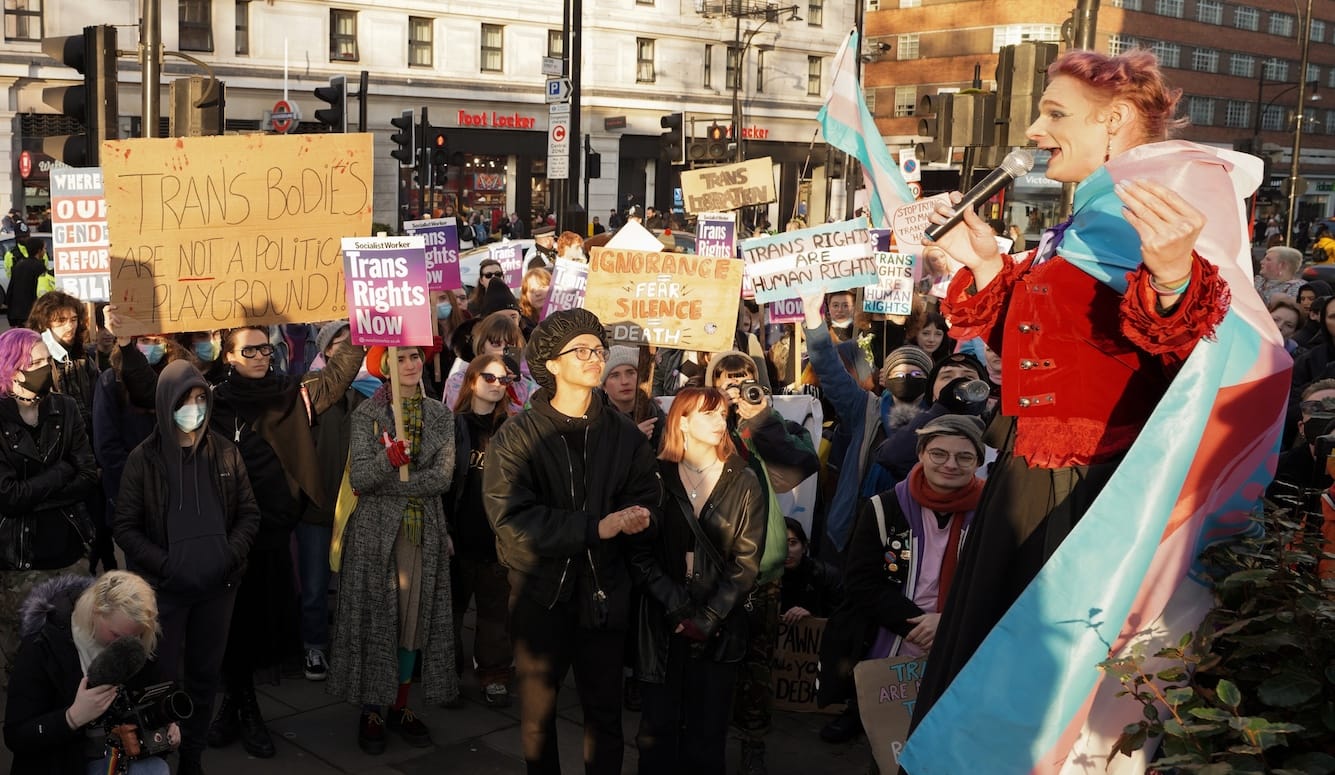Trans Activism
It Should Never Have Come to This
If we hadn’t spent so long pretending that ‘trans women are women,’ the growing political movement to align our laws with biological reality wouldn’t have been necessary.

On 16 April 2025, the United Kingdom’s Supreme Court unanimously ruled that the words “woman” and “sex,” as contained within the Equality Act 2010, should be interpreted as referring strictly to a person’s biological sex, not her or his self-described gender identity. It was a major victory for women who’d been raising concerns about the sanctity of protected female spaces since 2018. That was when Theresa May’s UK government opened a public consultation on reforming the Gender Recognition Act 2004—including changes that could allow a biological man to become a woman for all legal purposes, simply by attesting to possession of a female gender identity.
At the time, the transgender-rights movement was in the ascendant all over the English-speaking world. In September 2018, shortly after May announced her consultation, Stonewall UK—a former lesbian, gay, and bisexual charity that, over the last decade, has prioritised transgender rights—responded to resisters with a T-shirt that declared, Trans women are women. Get over it! At the time, it was imagined that opponents of unfettered transgender self-identification (“self-ID,” in the political shorthand) were headed toward cultural extinction, much like yesterday’s opponents of racial desegregation and gay marriage.
But that didn’t happen. Instead, these “gender-critical” opponents of maximalist transgender-activist demands have won a major legal victory. And it is those who keep insisting that “trans women are women” for all purposes who’ve been put on the defensive. In my new book, Transgender Rights vs Women’s Rights: From Conflicts to Co-existence, I explain how this political reversal occurred.
As noted above, 2018 was a key year—in part because it brought public attention to an important figure (as she would soon become) named Maya Forstater—a then-consultant at the Center for Global Development who lost her London-based job after she posted tweets that some of her colleagues reported as offensive. These included, “I think that male people are not women,” and “I don’t think being a woman/female is a matter of identity or womanly feelings. It is biology.”
Yes I think that male people are not women. I dont think being a woman/female is a matter of identity or womanly feelings. It is biology. People of either sex should not be constrained (or discriminated against) if they dont conform to traditional gender expectations
— Maya Forstater (@MForstater) September 25, 2018
A year later, when Forstater’s claim that she’d been discriminated against because of her gender-critical beliefs was dismissed by an employment tribunal, author J.K. Rowling tweeted, “Force women out of their jobs for stating that sex is real? #IStandWithMaya.” (Needless to say, Rowling has since become a widely demonised figure within transgender-rights circles.)
That tribunal ruled Maya Forstater’s beliefs to be “not worthy of respect in a democratic society,” a formulation that would situate her views as on the same level as Holocaust denial. But in 2021, an appellate body disagreed. Forstater’s case was revived, and she ultimately received an award of compensation and interest in the amount of £106,000.
Dress however you please.
— J.K. Rowling (@jk_rowling) December 19, 2019
Call yourself whatever you like.
Sleep with any consenting adult who’ll have you.
Live your best life in peace and security.
But force women out of their jobs for stating that sex is real? #IStandWithMaya #ThisIsNotADrill
As a veteran academic whose work covers human-rights law, I began to pay attention to the apparent conflict between the human rights of women and those of transgender individuals. Being a gay (non-transgender) man, I’d observed the political coalition that developed in the late 1990s and early 2000s between the (by then, well-established) LGB (lesbian, gay, bisexual) rights movement, and the more recently assertive transgender community. Even then, I had difficulty seeing what political common ground the two groups shared, but I went along with the political trend.
In 2002, I taught an intensive course at the University of Toronto on Comparative Sexual Orientation and Gender Identity Law, and replaced “lesbian and gay persons” with “LGBT persons” in my materials (a combination of topics and a choice of wording that is now banal, of course, but which was then new for me). I also wrote about transgender issues in a 2005 book chapter and referred to “her penis.” I simply took it for granted that the demands being made on behalf of the transgender-rights movement were reasonable.
A light-bulb moment came while teaching a summer course in August 2018, amid public discussion of Theresa May’s consultation. A non-transgender student asked about a legal development in the UK that had occurred back in 2014, when married transgender individuals were first permitted to change their legal sex without first getting a divorce. Why, the student asked, did this law require the consent of the transgender person’s spouse?





